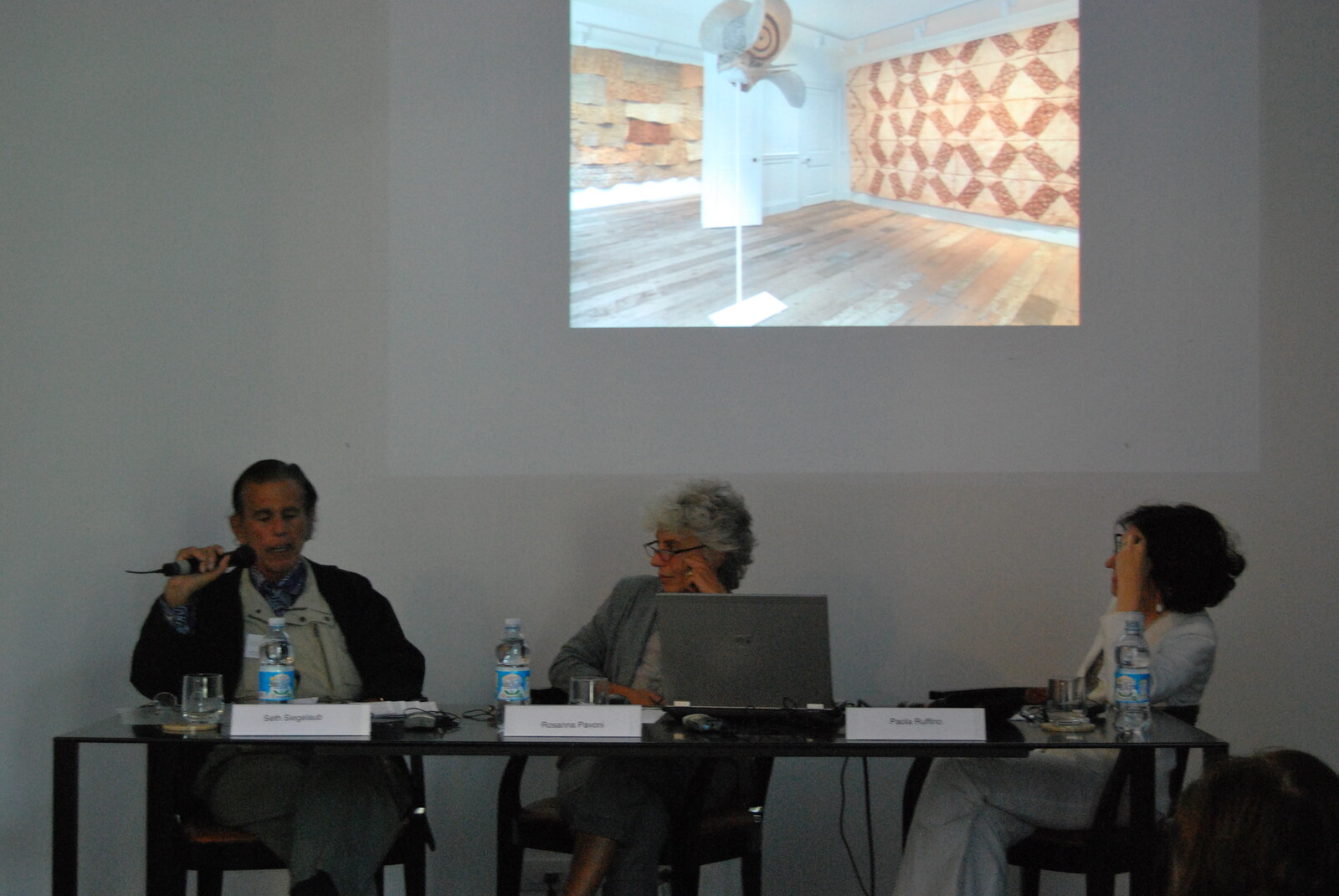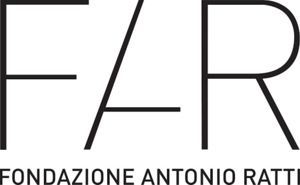Acquisition of book bequest and donation of textile collection
Via Cernobbio, 19
22100 Como
Italy
T +39 031 338 4976
info@fondazioneratti.org
Fondazione Antonio Ratti is delighted to announce the acquisition of Seth Siegelaub’s book bequest and the generous donation of his textile collection to us by his estate.
Independent curator, theoretician, researcher, collector and bibliographer, Seth Siegelaub was and still is a pivotal figure for curators, artists and scholars. His practical and theoretical approach to textile coexists with his political activism and his commentary on artistic production. He was continually aware of the social aspect of textile.
In 2012, while giving a lecture at the FAR Collecting Textiles symposium, Seth Siegelaub expressed his desire to find a repository for the textile collection and the book archive gathered during more than fifty years of passionate research, within an institution that could take care of his legacy. The archive would also become a physical and digitalized inventory, the continuation of the method of dissemination that he initiated with Stitching Egress Foundation.
Fondazione Antonio Ratti committed itself to acquiring his book bequest and welcomed the generous donation of Siegelaub’s textile collection from Marja Bloem, who inherited it in 2013.
This precious addition to Antonio Ratti‘s estate expanded the library of the Foundation composed by 7800 volumes, with the addition of some titles which will lead to the collection being more complete and more accurate. It will also further enhance FAR’s textile archive, creating a dialogue between two collectors who, despite their differences, shared a common cultural vision. The union of the two collections represents a unique bibliographic and textile patrimony, and FAR is committed to protecting and promoting it.
Textile collection and book bequest
Seth Siegelaub’s collection includes 723 items: among them, ritual objects, headpieces, costumes, carpets and fabrics from all over the world. All these items were collected with the purpose of investigating the social, political and religious functions in extra- European cultures that textile occupies. A mosaic of Tapa, Suzani, Copt, European velvets and Papuan artifacts which hark back to a large variety of cultural artifacts and links them to their specific contexts of production.
The book bequest is made up of more than 9000 publications: among them books, volumes and pamphlets of a wide range of interest, most of which are dedicated to textiles. The library is the most complete archive of textile literature in the world, whose detailed study led to the undertaking of the encyclopedic Bibliographica Textilia Historiae, edited by Siegelaub himself. Siegelaub’s purpose was to make textile studies accessible to art and technology specialists and to underline the cultural and anthropological relevance of textile to the so-called “primitive societies”, in the European Middle Ages and Renaissance up to the Industrial Age. He had a special interest in highlighting all the social and economic meanings associated with it. In addition to this collection, the book bequest includes publications concerning Marxist political theory, economic and industrial history, quantum physics, anthropology, philosophy, arts and crafts.
Seth Siegelaub
Seth Siegelaub was born in Bronx, New York in 1941 and raised in New York City. An all-encompassing character who is hard to pin down, he was by turns a gallerist, editor and independent art curator, researcher, bibliographer and textile collector. After working in the Sculpture Center of New York in the first 1960s, he opened his own gallery, the Seth Siegelaub Contemporary Art. Later, in 1966, he collaborated and forged links with several artists, including Carl Andre, Robert Barry, Douglas Huebler, Joseph Kosuth and Lawrence Weiner. He started in the mid-1980s to include sociology and anthropology within his research, deepening his knowledge of the history of popular culture and artisanal textile production. In 1986 he founded the Center for Social Research on Old Textiles, and in 1997 he published the Bibliographica Textilia Historiae, the first complete bibliography of textile literature from its origins to contemporary times.


